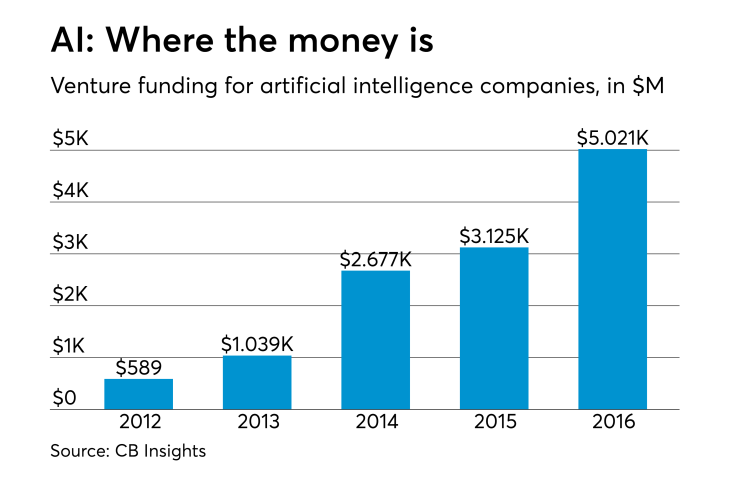A lot of people assume artificial intelligence is still a far-off technology, but in fact, it’s something we already use dozens, if not hundreds, of times each day.
Consider all of the AI applications built into your smartphone. It leverages supervised machine learning to recognize your thumbprint so you can unlock it easily. It uses natural language processing and advanced machine-learning technologies every time you ask Siri for assistance, such as scheduling a meeting or retrieving data about your morning commute. And it deploys unsupervised machine learning to sort your photos into albums based on the people who appear most frequently in them.
How and why did AI become commonplace? First and most important, it has become quite affordable to create and deploy AI applications. From the mid-1990s on, the advances in computing speed were so extraordinary and so consistent that they reached a critical tipping point. Suddenly, it became feasible to embed AI into all sorts of applications, from iPhones to climate modeling to financial forecasting to deciding which consumers to target for digital ads.
AI offers compelling benefits to just about every aspect of society, including business. For instance, unsupervised machine learning can crunch through massive datasets and pinpoint statistically relevant patterns and trends. This is revolutionary for a few reasons. First, it can process data at a level that is simply impossible for humans to do, which means we can tap into a level of insight that was never before possible. Second, because it can examine and make sense of data without any human input, it eliminates any bias and preconceived notions we may bring to a problem or opportunity. And finally, we used to say we don’t know what we don’t know, but with AI, that’s just not the case anymore.
Now think of the implications of these developments on corporate finance. If you’re a CFO, you probably spend your days analyzing and rationalizing your business. AI can spot meaningful correlations you would have missed otherwise. Something odd may be happening in the East Coast region, and another, seemingly different event may be occurring out West. AI will tell you whether or not they’re related, and if so, how you can take steps to act on that emerging trend.
AI can also automate complex processes, such as analyzing corporate transactions to ensure that all compliance requirements are met and identifying when something needs to be excluded, rejected or anomalies inspected. I can envision deploying AI to examine every account and transaction required to close the books, automatically ensuring that every line item is accounted for and processed into the right bucket in real-time.
More strategically, AI can be applied to business planning. When companies evaluate how to optimize their businesses, they always begin the year with a plan. You set a series of assumptions — we’ll make these investments, spend in these areas in order to bring in revenues across these customers, in these time periods, and so on. As your business becomes more complex, so do your assumptions. And as the year progresses, you’ll need to make adjustments — either spending more in an area if an initiative or product is delivering better than expected results, or course-correcting if results are disappointing.

AI can monitor, in real time, all deviations in a plan and assess which are acceptable, flag those that are not, and automatically alert the appropriate stakeholder when action is needed. In other words, AI can transform your business plan for the year into a 365-day action plan that you can manage daily to stay on track, react to opportunities, and reduce risk. This is revolutionary.
AI can also remove the human bias and errors that go into business plans. For instance, you may have a division head who always builds a cushion in some particular area of their budget, but AI can identify whether or not that spending level has ever been needed. If it isn’t, you can redeploy that resource to another department or business initiative.
Finally, AI will allow executive teams to bring in a greater number of data points into the planning process. For instance, you can assess such things as the impact of a potential trade war or even a natural disaster like widespread wildfires in California, in your five-year plan. And this, in turn, will allow you to plan more strategically for the future.
Of course, AI doesn’t come out of the box fully adapted to a particular company. AI needs to be trained, and that takes work and time to accomplish. But it will get easier over time, which is why CFOs should be monitoring AI developments and be ready to adopt them as soon as possible before the competition.





